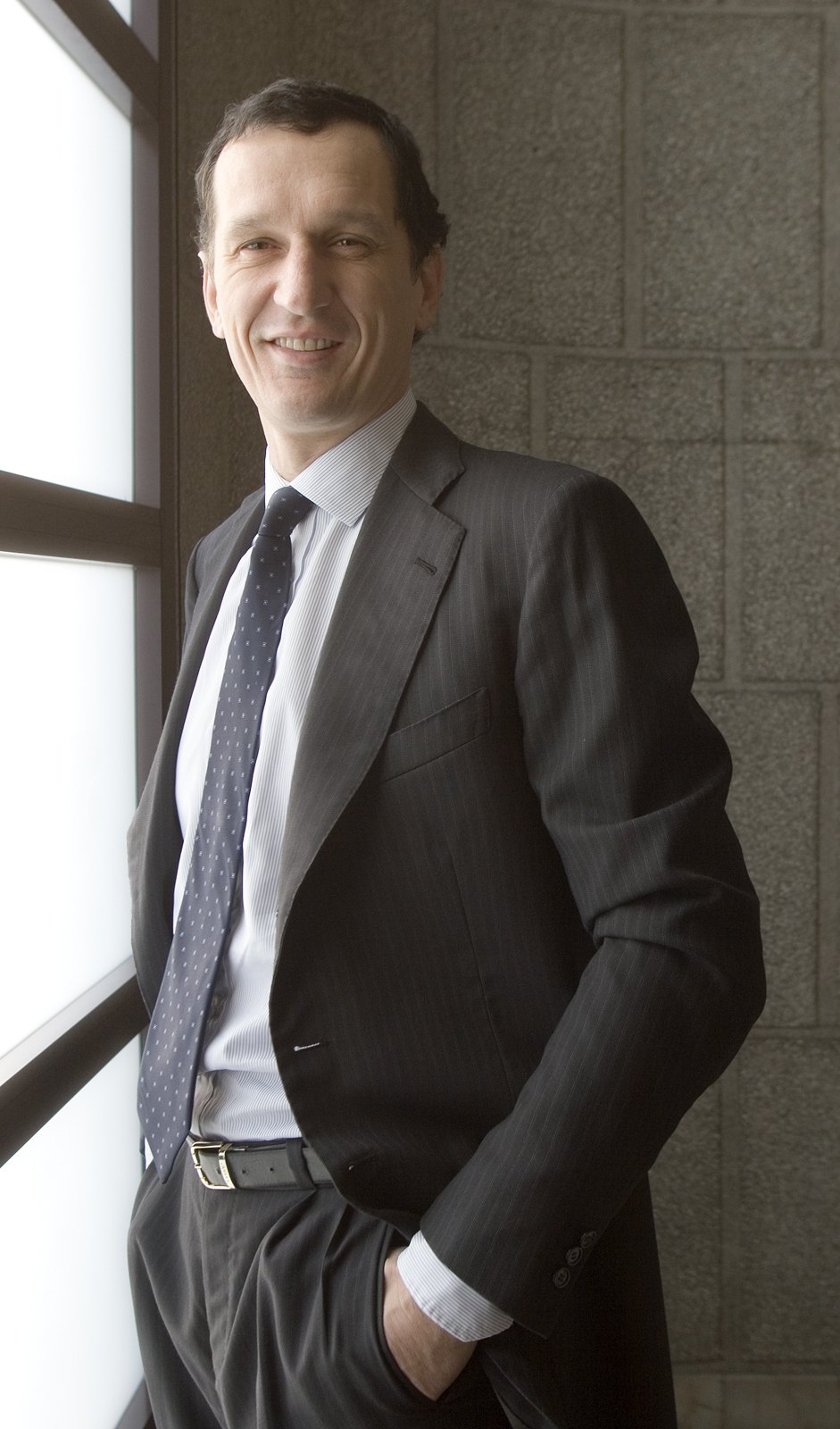Ge’s CEO for Southern Europe gives his recipe for strengthening the industrial and financial business in one of the richest market of the world. Apparent lacks, like enterprise size and infrastructural deficit could become an opportunity…
Lombard: What competitive benefits does Italy offer a multinational that wants to invest in Europe?
Recchi: One factor in its favor is that it is a rich country, despite certain facts and figures that do not show the real state of health of the society. For example, before the crisis Italy was the second or third most important market in Europe for many large international banks, partly because it is a tax paradise of sorts, with a capital gains tax of the 12.5%. A second plus point is the widespread use of the technology among small and medium enterprises, which are flexible and accustomed to competition, but struggle to establish themselves internationally. Nowadays you need to be big to compete on a global scale – size is key to survival. The SMEs that typify the Italian industrial structure only stand a chance in competitive terms if they are part of the supply or technology chain of a big group.
Lombard: Could you explain this point in more detail?
Recchi: A good example is the story of NuovoPignone, a non-strategic portfolio company of the ENI group. It was the first State-owned company to be privatized in Italy, in the mid 1990s. Paolo Fresco, who was the vice president of Ge at the time, saw an opportunity to expand the offerings of our Energy division with the high tech compressors that were made in Italy and so we bought it. Application of the Ge model for its financial and commercial management increased the turnover tenfold, from €1 bn to €10 bn, and it became a leading multinational player. There are a number of similar cases in Italy.
Lombard: However, nowadays the availability of technology is not enough by itself…
Recchi: No, but in Italy it is bolstered by the inherent innovative capacity of the industrial culture. International competition is very strong now in this respect too, because the model of university research centers integrated with industry has been imitated everywhere. However, public support for research and development in Italy, together with the EU funding for the South of the country, definitely counts in its favor. These two forms of assistance have led to the creation of centers of excellence of international standing, such as the ones in Catania for microelectronics, in Trieste for research, and in Palermo for health. The latter received a $250 mn contribution from the University of Pittsburgh to create ISMETT, a transplant center that is leading the way worldwide.
Lombard: What else could you add?
Recchi: The competitive nature of the workforce. It may cost more than in China, but employing people here is much cheaper than in Germany, and – in the field of mechanics – also France and Great Britain. If you do your sums properly, in terms of the end product it may be cheaper than Romania as well, if you consider the cost of transport, quality, logistics and all the rest, on top of the labor. Things are changing worldwide. Hungary was a very attractive place for investments 10 years ago but now we have to pay lots of additional taxes in the banking industry, even though GE employs 16,000 people, meaning it is no longer that appealing to be there.
Lomabrd: In Italy there is a structural deficit in the construction of infrastructure for energy and transport. Do you think that enough public investments is being made to bring the country back in line?
Recchi: Infrastructure will always be on the agenda for any government, but in Italy there are many difficulties when putting it in place, starting with the future outlook in the planning stage. When I was working in civil construction in the United States in 1990s, projected traffic for 2030/2040 was considered for the purpose of meeting the needs of future generations and facilitating conditions for development. When infrastructural work is completed in Italy, it is often already unable to cater to demand. The problem is particularly serious in the energy field. The output does not cover the demand and so in Italy has higher energy costs that any other country. Furthermore, time will be needed to put the nuclear option in place, as it takes at least 12 years to complete a power station. That means political commitment for at least 2 government terms in office – something that is not easy to achieve in Italy. A second plus is the widespread use of technology among small and medium enterprises, which are flexible and accustomed to competition.
Lombard: Could renewable energy be the key to solving the problem?
Recchi: Renewable energy sources cover only a tiny amount of the general requirements and the business model is reliant on subsidies. The only possible exception is photovoltaics, which has reached grid parity in Italy, so the cost of building a plant could be covered by the sales price of energy without subsidies.
Lombard: In Italy, Ge also works in the filed of finance, both consumer and corporate. Why do you believe that there is room for growth?
Recchi: Ge specializes in corporate finance and has a business model based on its industrial know-how and on dialogue with the client companies, which takes place between two experts of equal standing. The aim is to offer added value in terms of sectoral and operational know how all aver the world. For example, the airlines service, the largest aeroplane leasing company in the world, derives its experiences from the Ge’s core business, the making of aircraft engines. In this area, Ge has developed a risk management approach that is better than any bank can offer. This know-how is behind the entire leasing business for dump trucks, fleets of company cars, machinery and computer materials, which can also be found in Italy.
Lombard: Is working in the finance business in Italy still worthwhile today?
Recchi: Yes, if you have an original business model, although the earnings from leasing and factoring are lower in Italy than in the rest of Europe. This is because the banks use a model based on low cost funding and very traditional remunerative uses: the classic lines of credit. Corporate services are considered to be ancillary and noncore – it is no coincidence that they are classified under “parabanking”. They are there so that a complete range con be offered to customers, but until now they have not played a decisive role in the balance sheet of banks.
Lombard: So what opportunities are available for specialists?
Recchi: The international regulations (Basil II and III) are placing an ever greater onus on financial operators to give credit risks a more objective pricing which is not so closely tied to the subjective knowledge of the clients and their history in the area. This means that the price-risk ratio in Italian banks too will have to be more in line with the profit requirements of the capital. The prices of their services, which are currently lower than the international benchmarks, will have to increase. At that point, Ge will become even more competitive, thanks to its capacity for relationships with industry.
Lombard: Why are you pulling out of consumer finance?
Recchi: The returns are not high enough, because the cost of funding means we cannot complete with local banks that give out loans in the surrounding area. This is particularly true in Italy, where there are high levels of private savings and almost no earnings on deposits. Ge on the other hand finances the business with its treasury, which in turn gets money by issuing bonds. If you add the general cost of the distribution company and the coverage of international risk to the cost of the bonds, the business model is no longer efficient.
Lombard: But the problem of funding the other activities still remains…
Recchi: That’s why we have decided to collect more funds in the country through Interbanca, by issuing corporate bonds. This should provide us with competitive funding for use in industry.
Lombard: Could the principal investments business be interesting?
Recchi: Ge Equity business was downsized across the globe because it created volatility, with negative repercussions on GE’s stock price.
Lombard: So?
Recchi: We now do private equity work on a small scale, with investments of around € 10-20 mn in strategic industries. It is a form of diversified asset allocation, that aids our core business.
Lombard: Will private equity pick up again?
Recchi: The best opportunities arise in the eastern part of the world. The PE world now sees Europe as a market of IPOs for companies that have to exit fund portfolios in which they have lingered for too long. The prices are still too high for new deals, but on the fundraising front there is less irrational exuberance. Potential investors know that they can no longer expect an IRR of 30%. Moreover, enormous $20 bn funds have gone out of fashion. People are now interested in funds of $1bn to $3 bn, with a track record for the managers over the last 2 or 3 funds of 15% to 20% of IRR.








Be First to Comment